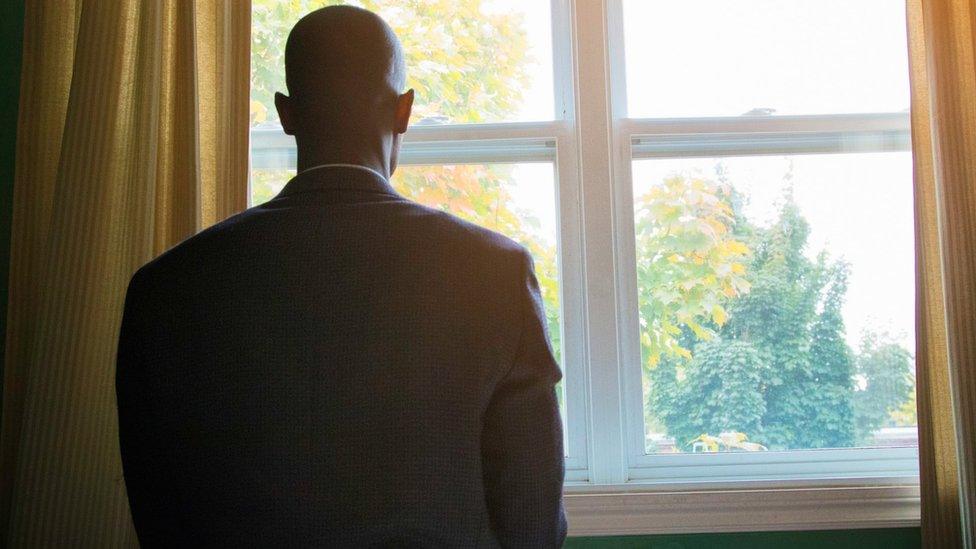Mental health crisis patients 'waited eight hours' at emergency departments
- Published
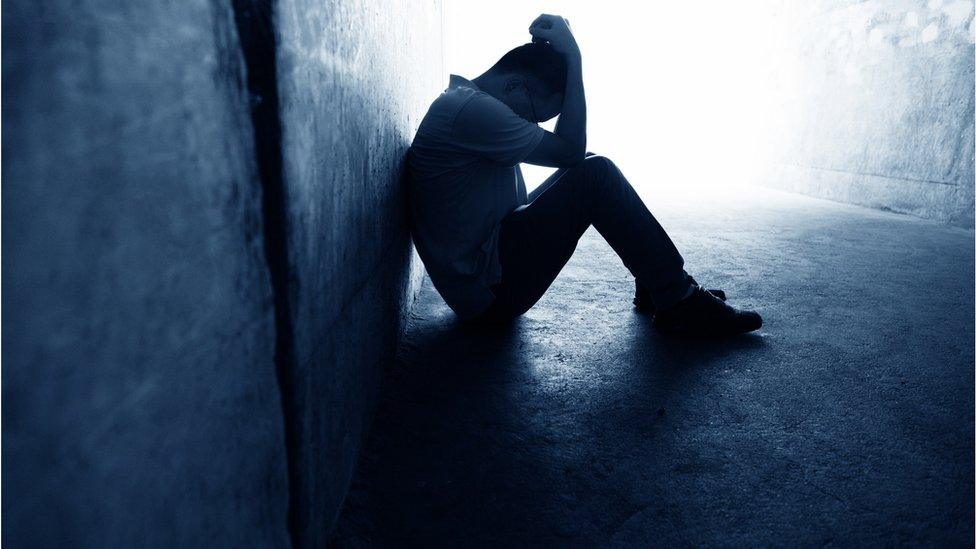
More than a third of patients waited longer than two hours for a mental health assessment in Belfast Trust emergency departments between 2017 and 2020
Mental health targets have been missed thousands of times at Northern Ireland's emergency departments (ED) - with some people in crisis waiting more than eight hours for an assessment.
Health trusts aim to assess such patients at ED within two hours, but miss that target 20% of the time.
Health officials said access to mental health services is a key priority.
But they accepted availability of those services has been hit by extra pressures caused by the pandemic.
"Covid-19 has undoubtedly impacted on the availability of services and led to pressures across the HSC, including mental health," said NI's Director of Social Care and Children, Marie Roulston.
The two-hour waiting time was set by the Health and Social Care Board to try to ensure that those who were in need of an urgent mental health assessment did not have lengthy waits in emergency departments.
While the number of people using emergency departments dropped in 2020 because of the coronavirus pandemic, the percentage of those waiting more than two hours for mental health assessment remained largely the same.
Missed targets
People were identified as needing a referral for a specialist mental health assessment at Northern Ireland emergency departments more than 42,000 times between January 2017 and September 2020.
On more than 8,000 of these occasions, the patients had to wait for more than two hours before being seen.
The findings were obtained by BBC News NI through a series of Freedom of Information requests to health trusts.
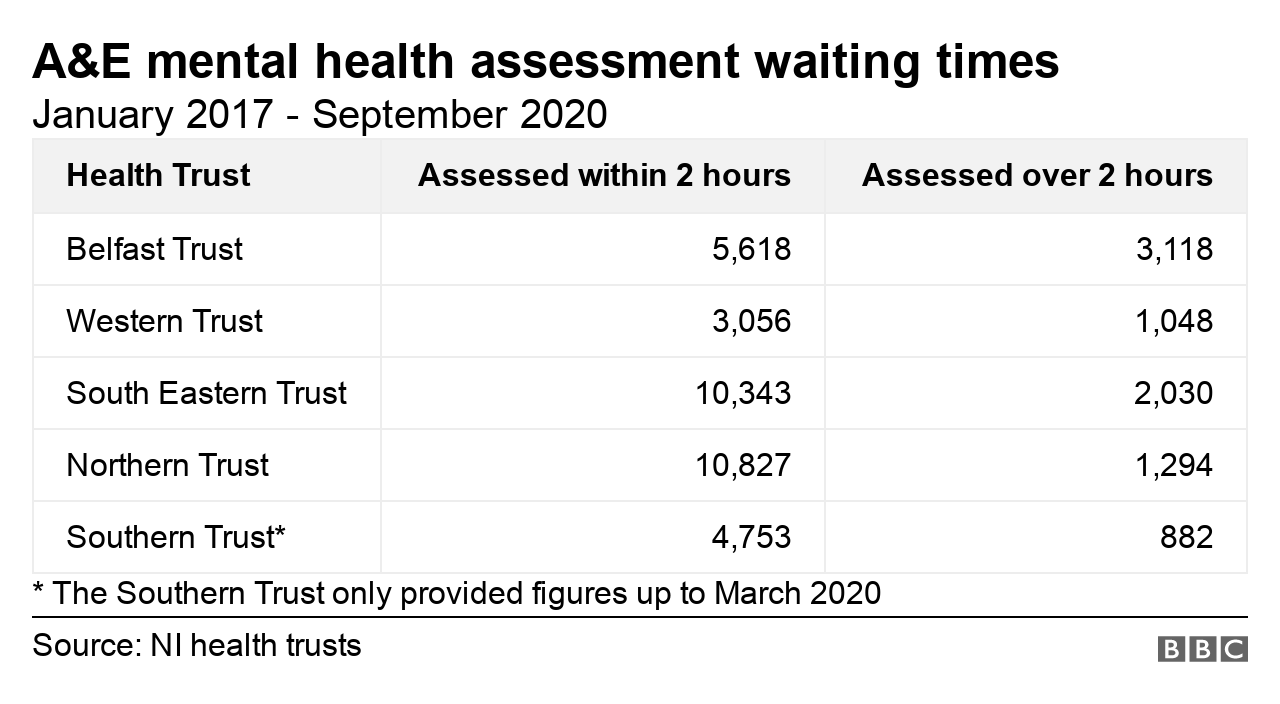
The figures were obtained through a series of FOI requests
The Belfast Trust had the highest percentage of those not seen within two hours, with more than a third of patients waiting longer than two hours for a mental health assessment.
More than 70 of those patients waited for longer than eight hours, while some had to wait as long as 12 hours.
The Belfast Trust said it aimed to see individuals presenting to ED "within the target timescale, however, at times demand outstrips our capacity to meet this".

'I could have just been a statistic'
BBC News NI speaks to one Belfast teenager who waited eight hours in an emergency department while having a mental health crisis
Aidan McMeekin is 18 and lives in Belfast.
His mental health suffered after he was expelled from school.
He said: "It got to the point where I was actually begging to my mum: 'I don't want to be here anymore, please just let me go.'"
Soon after, Aidan was taken to the emergency department of Belfast's Mater Hospital, where, he said, he waited for eight hours before receiving a mental health assessment.
An investigation by BBC News NI has also found that mental health targets have been missed thousands of times at Northern Ireland's emergency departments (ED) - with people like Aidan waiting eight hours and over for for an assessment.
After losing one of his close friends to suicide, Aidan's attitude changed.
"I saw first-hand how it has destroyed their families and I want to make sure that me or no-one I know goes down that route."
He added: "I could have been just a statistic. People say you're forever young, but you're also forever dead."
If you have been affected by any of the issues in this article, there are a list of organisations that may be able to help at BBC Action Line.
Aidan has been working with Quakers NI to share his story and raise awareness of mental health issues among young people in Northern Ireland.

Although the Belfast and Western Trust had the highest percentage of patients waiting for at least two hours, both these trusts also had smaller number of patients attending ED for mental health assessments.
In recent years, new pilot community crisis intervention services have been rolled out in Londonderry and Belfast, which can be used by patients within these trust catchment areas.
All five trusts told BBC News NI that while they were working hard to meet targets, this was not always possible.
A spokesperson for the South Eastern Trust said: "This can be challenging at times due to the overall growth in demand for mental health assessments, including an increase in referrals from our emergency departments.
"In addition, the region's long-standing workforce pressures impact on our capacity to respond to referrals within target, although we are continuously working with commissioners to further develop our mental health early liaison provision."
'Devastating waits'
In recent years, some emergency departments have appointed mental health liaison officials, while the department of health has also approved funding for a new perinatal mental health service.
Health officials say delays to ED mental health assessments can be caused by a number of factors, including:
The person may need medical treatment before being assessed
They may be intoxicated due to the effect of alcohol or drugs
Staff shortages
In December 2020, Health Minister Robin Swann launched a public consultation on a 10-year Mental Health Strategy for Northern Ireland.
It called for investment in a regional mental health crisis service to help reduce waiting times at emergency departments for mental health patients.
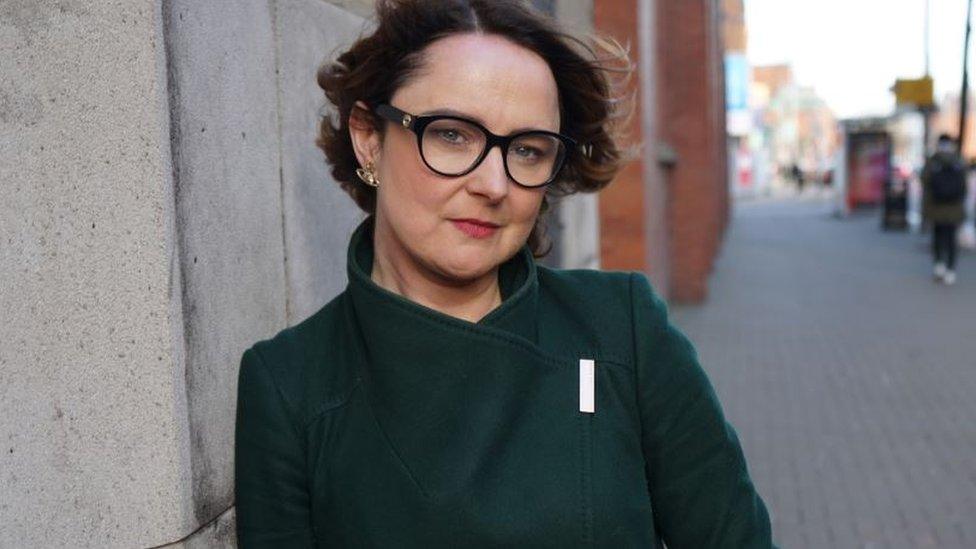
Prof Siobhan O'Neill says behind the statistics are 'real people'
While Northern Ireland's suicide rate may be lower than previously thought after a review found some drug-related deaths, originally recorded as suicide, were accidental, the region's mental health champion said that behind the statistics were individuals "in their darkest hours, facing devastating waits".
Siobhan O'Neill said: "Emergency departments can be chaotic and staff are doing their best, but it's far from the ideal environment for someone in a mental health crisis.
"There are some excellent specialist mental health crisis services that have been piloted in Derry and Belfast, but the reality is A&E is still going to be the point of access for many people in crisis."
She added: "When people face lengthy waits they can be made feel like a burden, so we need to find a longer-term solution to ensure those with suicidal thoughts are not waiting hours for help."
A regional review of mental health crisis services in Northern Ireland is due to conclude in April. It is expected to call for a regionally-consistent response to people suffering a mental health crisis.
The Health and Social Care Board said: "We will continue to work on improving services in mental health to ensure that those who experience a mental health crisis will receive the help and support they need in the setting which is most conducive to recovery."
If you have been affected by any of the issues in this article, there are a list of organisations that may be able to help at BBC Action Line
Related topics
- Published19 October 2020
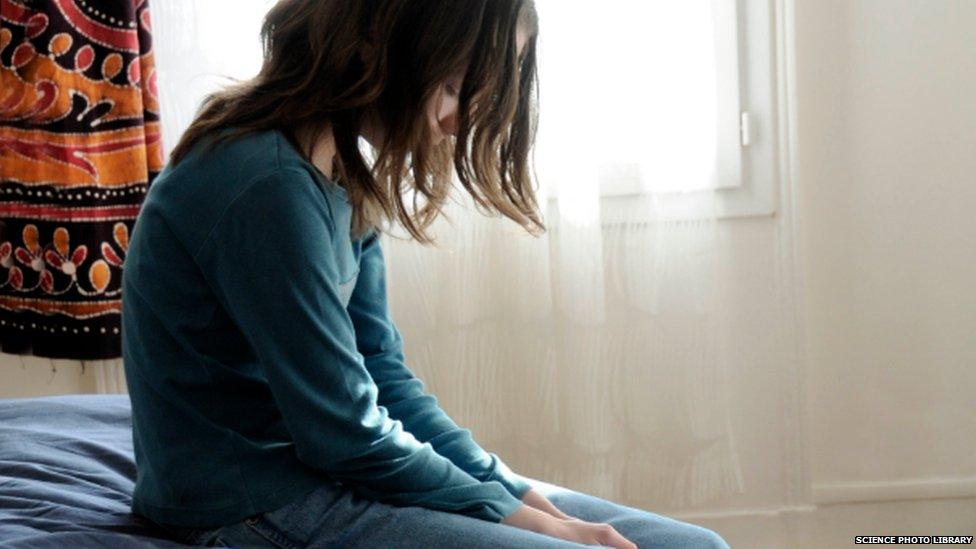
- Published24 June 2020
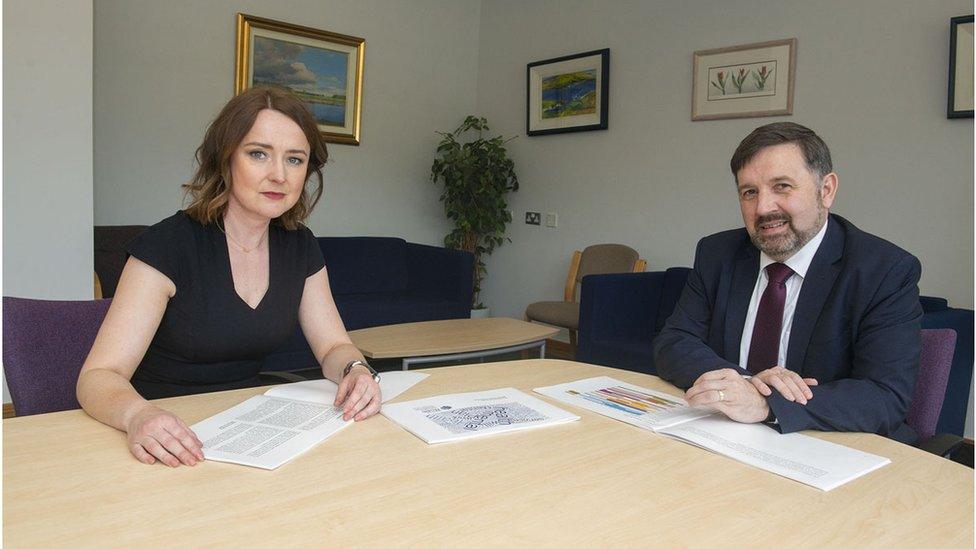
- Published7 October 2020
